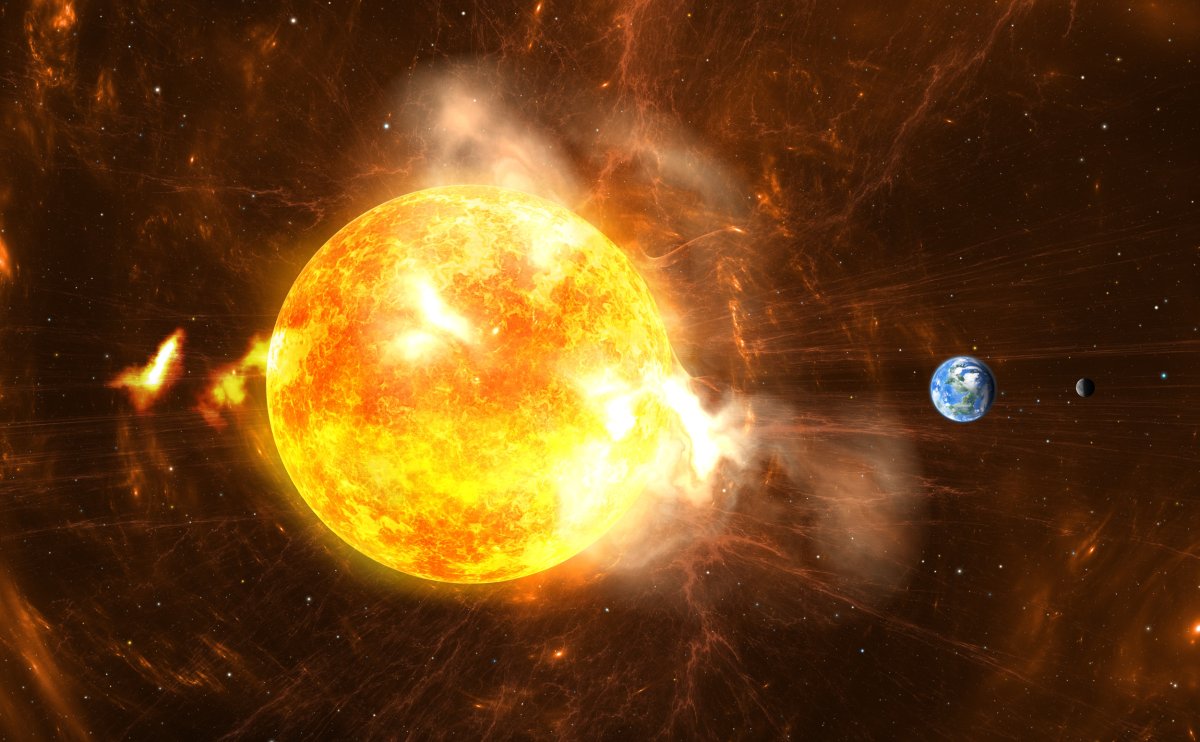Scientists have made a link between cosmic radiation and earthquakes for the first time.
The CREDO project, initiated in 2016 by the Institute of Nuclear Physics of the Polish Academy of Sciences (IFJ PAN) in Krakow, Poland, is working to analyze how earthquakes can be predicted by measuring cosmic radiation.
The destruction caused by strong earthquakes could be significantly reduced if scientists learned how to predict where and when they will occur.
A new study from the project found a strong connection between cosmic radiation and earthquakes, although not in a way that anyone expected.

"We cannot imagine a conventional scenario in which cosmic radiation causes earthquakes, and this comes from my whole career—25 years—experience in the field of ultra-high energy cosmic rays," Dr. Piotr Homola, coordinator of CREDO and first author of the article describing the discovery in the Journal of Atmospheric and Solar-Terrestrial Physics told Newsweek.
"The most intriguing outcome of our study is that we see a connection between the two seemingly disconnected science realms: cosmic rays and seismicity," Homola said. "But we cannot conventionally point to a possible causal relation: neither cosmic rays causing earthquakes, nor some process inside Earth causing a regular and complex effect with radiation that precedes a seismic shock."
While the hypothesis that a link between earthquakes and cosmic radiation may seem peculiar at first, Homola explains that the foundations of the idea are actually quite rational.
Eddy currents within the core of the planet—which generate its magnetic field—divert charged particles of cosmic radiation. So, if a huge earthquake was associated with these flow disturbances, the magnetic field would be affected, and cause changes inside our planet.
When CREDO scientists analyzed cosmic radiation data from the Neutron Monitor Database project (collected over the last 50 years) and the Pierre Auger Observatory (collected since 2005), a clear correlation was found between earthquakes of magnitude 4 or larger, and the intensity of secondary cosmic radiation.
But this correlation is only evident when cosmic ray data shifts 15 days relative to seismic data. This suggests it could give scientists information on earthquakes well in advance.
But it is still not clear whether it will be possible to determine the location of these earthquakes.
This is because correlations are not evident in location specific analyses, the study said. In fact, the correlations only appear when seismic data is taken into account on a global scale.
This suggests that from changes in cosmic ray intensity, we can see "a phenomenon to which our planet is subjected as a whole."
The findings open the door to consider other less conventional explanations.
"On the other hand, we have in mind exotic scenarios such as dark matter streams, capable of affecting both the Earth as a whole in a mechanical way (seismic shocks) and generate radiation which could precede the shock and be observed with standard cosmic ray detection techniques," Homola said.
"Such a 'third party' scenario could completely explain the number of peculiarities in our observation, although at the moment only qualitatively," he said. "The ongoing studies aim at testing the exotic scenarios we have in mind, and, if we succeed, this would of course mean an epochal discovery."
Do you have a tip on a science story that Newsweek should be covering? Do you have a question about earthquakes? Let us know via science@newsweek.com.
Uncommon Knowledge
Newsweek is committed to challenging conventional wisdom and finding connections in the search for common ground.
Newsweek is committed to challenging conventional wisdom and finding connections in the search for common ground.
About the writer
Robyn White is a Newsweek Nature Reporter based in London, UK. Her focus is reporting on wildlife, science and the ... Read more
To read how Newsweek uses AI as a newsroom tool, Click here.








